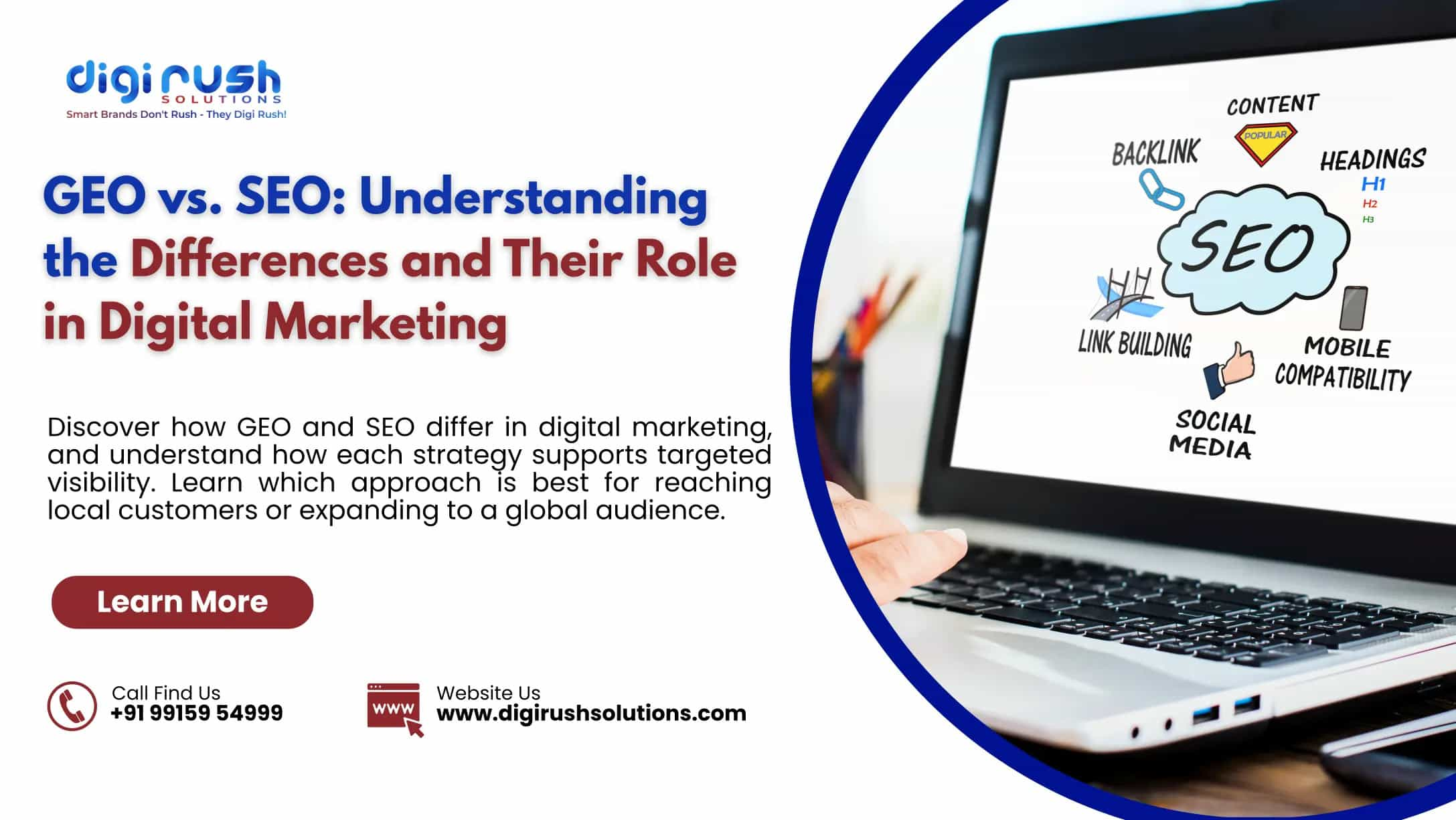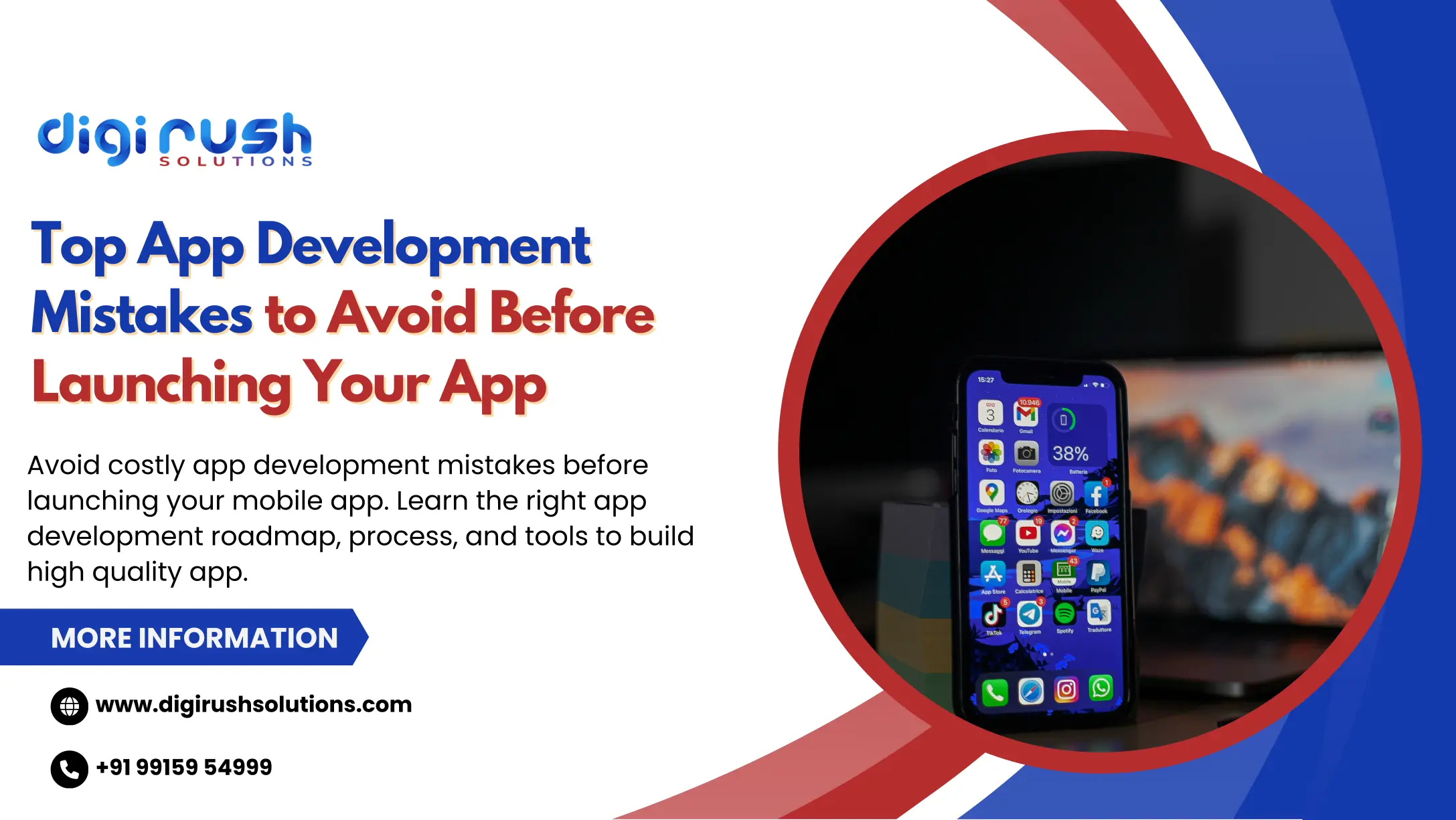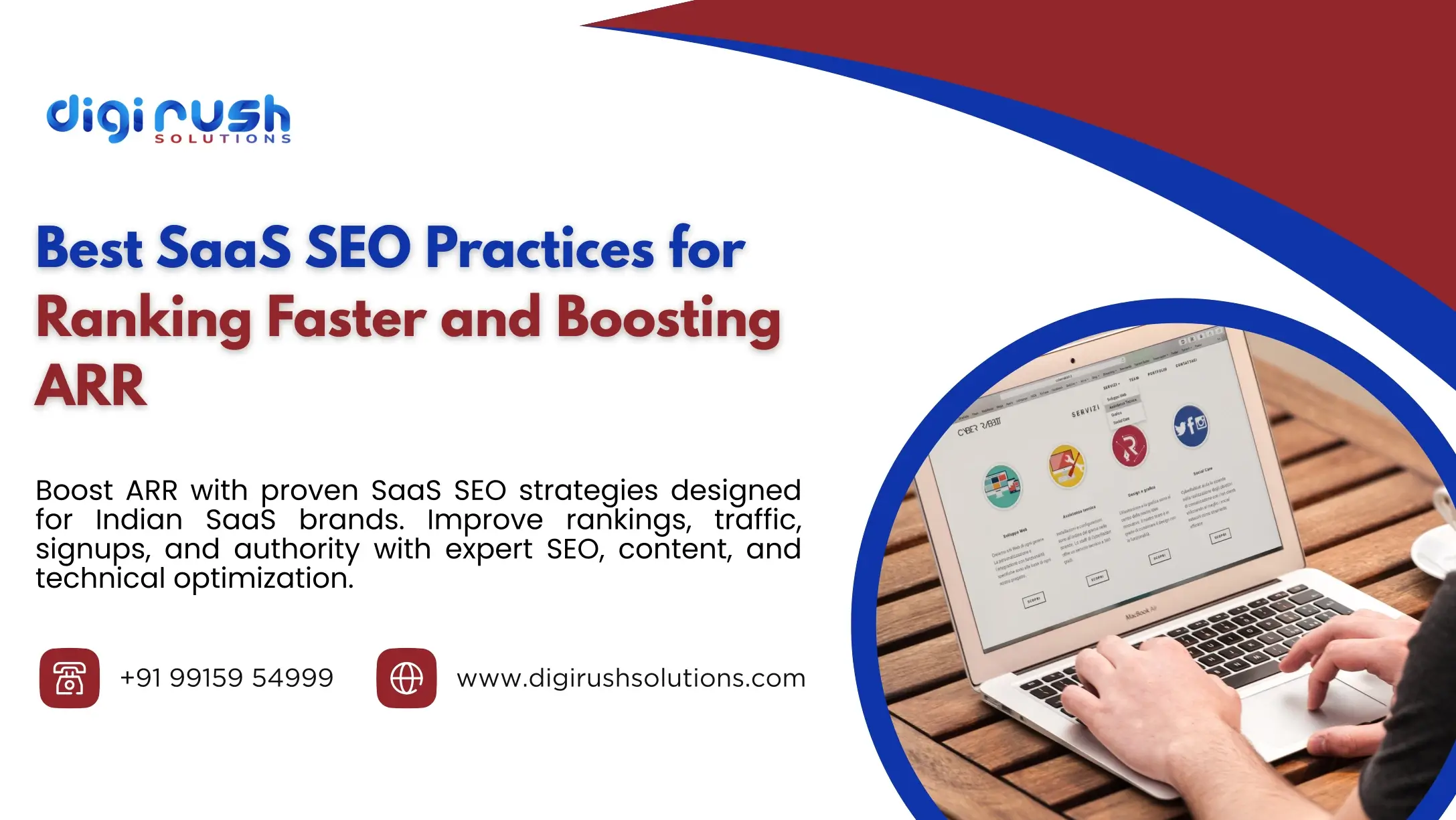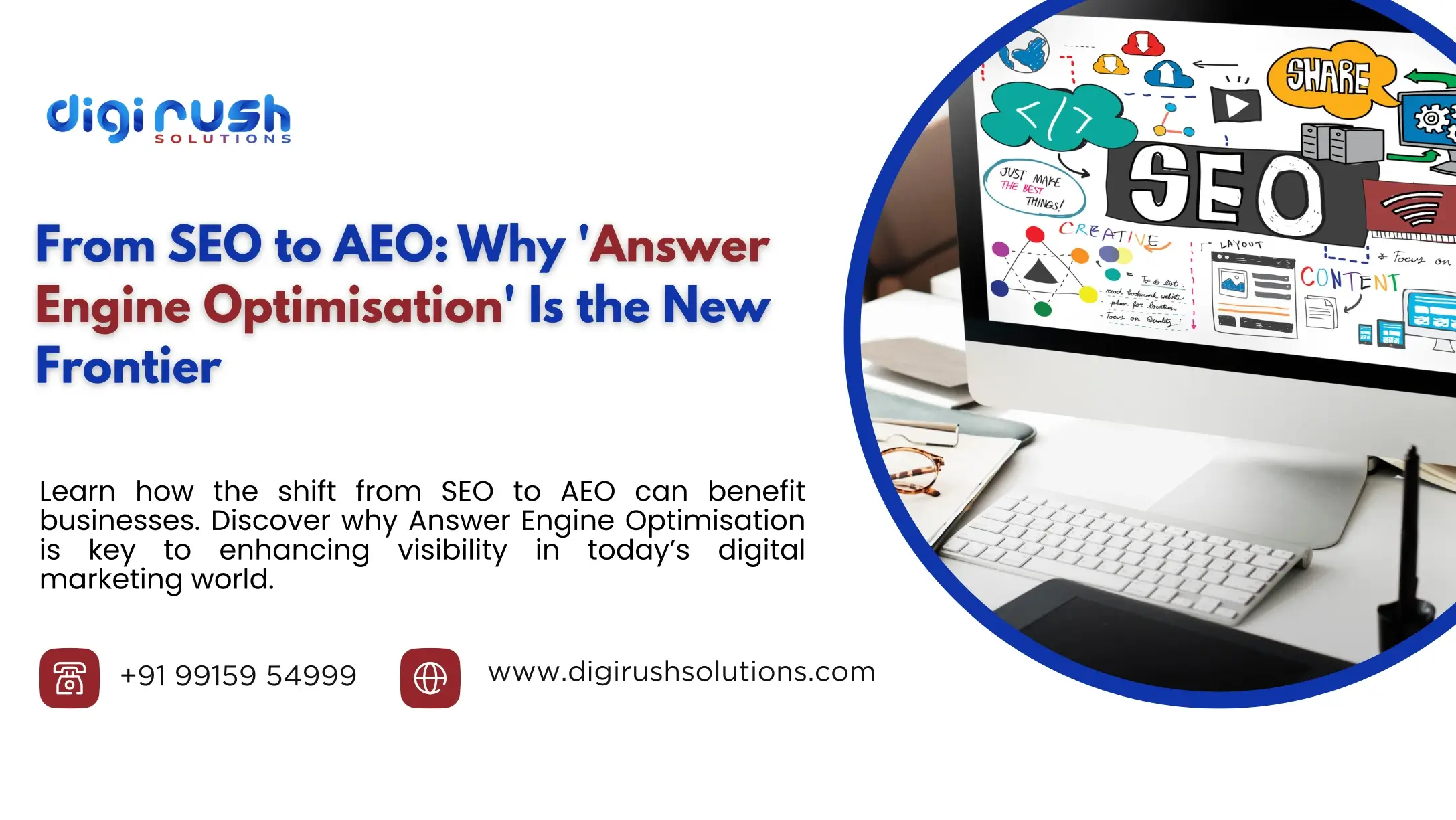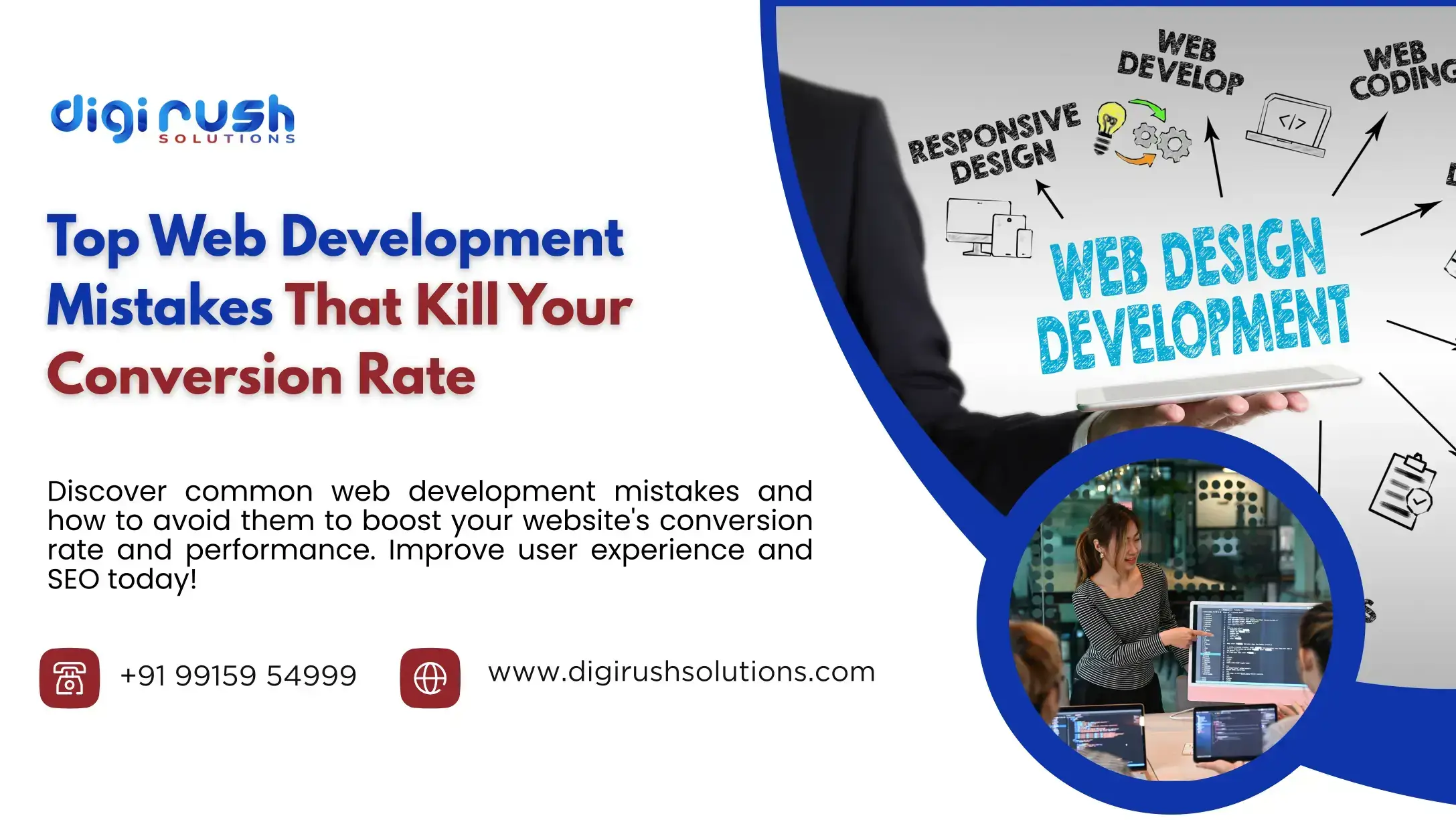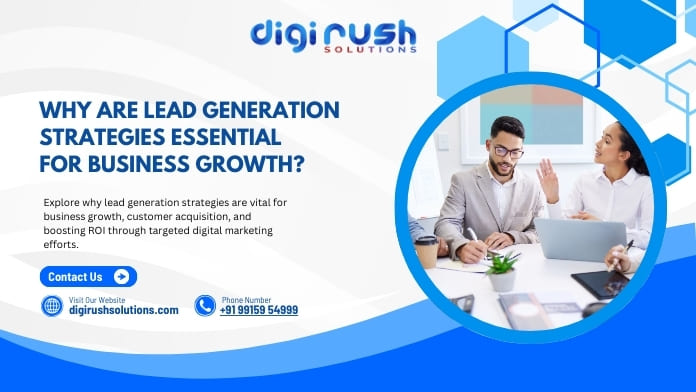
Success in business doesn't solely depend on providing a quality product or service—it's about continually attracting new customers who are willing to engage. In the middle of this operation is an important piece: lead generation. Without a continuous flow of quality leads, even the most creative businesses are in danger of stagnating or dying. That is where lead generation strategies come into play.
Whether a company is a start-up seeking to get its foot in the door or an established business looking to expand, having a solid lead generation strategy is critical. Not only do these strategies get prospects to your doorstep, but they also ensure those prospects are the correct ones for what your company has to offer. Executed properly, lead generation becomes the lifeblood of steady revenue and sustainable growth.
This blog discusses why lead generation strategies are essential to business growth and how businesses can leverage their power to attain long-term success.
Understanding the Essence of Lead Generation
Lead generation is finding and capturing individuals or businesses interested in your service or product. A lead is any individual who has indicated some interest—by subscribing to a newsletter, completing a contact form, participating in a webinar, or responding to a social media posting.
Lead generation aims to create a pipeline of potential buyers and convert them into recurring clients. This activity serves as the connection between a brand and its future clients. Whereas conventional marketing involves sending a message to a large audience, lead generation tactics are more purposeful and deliberate, intending to bring in people who actually care.
For example, a Pune-based specialized SEO firm can create leads by providing a complimentary SEO audit for local companies, pulling in prospects looking for digital exposure.
Fundamentally, successful lead generation is about providing value, establishing trust, and walking prospects through a process—from first awareness to final buy.
Why Is Lead Generation Important?
The value of lead generation can not be overemphasized. Here's why:
- Revenue Growth Over Time: A company can't increase its customer base without fresh leads. Lead generation guarantees an ongoing stream of new prospective clients into the sales pipeline.
- Increased Conversion Rates: Leads developed using deliberate means are more qualified and are more apt to turn into paying customers.
- Efficient Sales Process: When marketing and sales teams work together to develop lead generation strategies, it leads to an effective sales process. Sales teams get to concentrate on warmed-up leads.
- Enhanced ROI: Lead generation strategies that focus on waste marketing expenditure. If your outreach reaches the right individuals, the return on investment improves extensively.
- Brand Visibility and Awareness: As companies adopt measures to draw leads, they also increase brand visibility through channels, making them more credible in the market.
Even a SEO company in Jaipur can employ geo-targeted content and local citations as part of its lead generation strategy, enabling it to reach out directly to Jaipur-based businesses looking for online visibility.
Lead generation is not merely an extra marketing activity; it is a cornerstone of contemporary business strategy.
Lead Generation for Growth
Each successful business adventure entails a continued broadening of the customer base. This is how lead generation techniques drive that expansion:
- Scalability: If your company has a functional lead generation process in place, growth becomes orderly. You can confidently boost ad spending, venture into new geographies, or introduce new products.
- Predictable Revenue: A consistent flow of leads equals more predictable revenue. Companies can anticipate sales more accurately and strategize for the future.
- Market Penetration: Fresh leads tend to filter in from untapped segments. Accessing them enables a company to solidify its grip on the current market or venture into new geographies.
- Customer Retention and Upselling: Lead generation sometimes involves nurturing and relationship development. This helps create loyalty and paves the way for opportunities to cross-sell and up-sell.
- Innovation Opportunities: Monitoring the behaviors and interests of leads enables firms to evolve their offerings based on actual-time feedback, resulting in enhanced product-market fit.
An Indian web development company could generate growth by producing interactive tools or complimentary website inspections that appeal to business owners eager to re-engineer or make over their cyber presence.
Businesses seeking sustainable growth need to consider generating leads not as a marketing assignment but as a strategy for driving growth.
Key Components of Successful Lead Generation Strategies
Not every lead generation strategy performs alike. What divides high-performing campaigns from others is the purposeful combination of several elements:
a. Appealing Offerings
Whether free ebook, consultation, or product demonstration, providing something with value in exchange for contact information is a simple yet effective trick. This value-based tactic will increase the prospect of lead capture.
b. Effective Call-to-Action (CTA)
An impactful and concise CTA directs the user to action. CTAs must persuade and be purposefully positioned, whether a download or booking call.
c. Landing Pages
A dedicated landing page with a clear conversion target leads to a better quality lead and less distraction. It will correspond with the CTA and follow through with its value pledge.
d. Lead Magnets
Lead magnets like webinars, whitepapers, checklists, and templates are worthwhile materials encouraging users to provide their contact details. In specific campaigns, Broken link building strategies are employed to find outdated resources and provide alternative new, useful ones that lead through backlinks and referral traffic.
e. Nurturing Workflows
Getting a lead is only the start. Lead nurturing, which includes email marketing, follow-up messages, and tailored content, continues to engage prospects until they're ready to convert.
f. Analytics and Optimization
Data analysis enables companies to assess what is working and what isn't. A/B testing, monitoring conversion rates, and performance reports are crucial to continually optimizing strategy.
Understanding the Target Audience
Before initiating any campaign, the most important question every business needs to address is: Who are we targeting?
Successful lead-generation initiatives start with an intimate knowledge of the target audience. Here's how:
- Buyer Personas: Creating in-depth personas from demographics, behavior, motivation, and pain points enables crafting marketing messages that speak to them.
- Segmentation: Segmenting the audience facilitates personalized communication, which enhances conversion rates.
- Customer Journey Mapping: By knowing how prospects progress from awareness to decision-making, companies can design touchpoints that greet them at every step.
With technologies such as Programmatic SEO, marketers can scale content for thousands of distinct keywords based on user intent—enabling hyper-targeted experiences for every persona segment.
Knowing your audience ensures that your efforts are not wasted on people without intention or need to buy. It increases efficiency and drives better results.
Explore Digital Marketing Channels
Modern lead generation would be impossible without digital channels. Every platform presents individual opportunities to engage with potential consumers. Diversification of tactics guarantees the maximum amount of reach and efficiency.
a. Search Engine Optimization (SEO)
Search engine optimization for website content brings in organic traffic. Individuals actively looking for answers are more inclined to convert to leads. Going for long-tail keywords and creating informative blog posts can be very powerful. Most companies work with an SEO company in Pune, so their methods are in line with best practices and hit local audiences.
b. Pay-Per-Click Advertising (PPC)
Google Ads and other PPC websites enable companies to put themselves in the way of well-targeted groups. PPC's power lies in controlling budget, targeting, and measurable outcomes.
c. Social Media Marketing
LinkedIn, Instagram, and Facebook are practical lead-generation tools. From sponsored stories to influencer partnerships, social media enables direct contact with possible leads.
d. Email Marketing
Email is still among the top ROI lead generation channels. Drip campaigns personalized for each lead can foster leads and push them to a sale.
e. Content Marketing
Authority and trust are developed through educational and compelling content. Blogs, videos, infographics, and podcasts work towards attracting and converting leads by giving value right from the start.
f. Webinars and Virtual Events
The live, interactive sessions provide immense engagement and loads of value, making them ideal for capturing top-quality leads.
g. Live Chat and Chatbots
Live interaction tools on your site can significantly increase conversion rates. Visitors receive answers in real-time, boosting the likelihood that they will leave their contact details.
Final Thoughts
A company's success is not solely based on its fantastic product or service but also on its power to continuously attract, engage, and convert new prospects into customers. That is why lead generation strategies are not an extravagance—they are a necessity.
By grasping the essence of lead generation, determining target audiences, and utilizing digital platforms, businesses can create a reliable and reproducible pipeline of prospective clients. Whether you're an independent entrepreneur, a web development company in India, or an international brand, optimizing your lead generation strategies will lead to new opportunities, markets, and long-term growth.
Begin with certainty, stay true to your work, and lead with data in your decision-making. The payoff? A prosperous business fueled by a constant influx of high-quality leads.
Recent Blog





